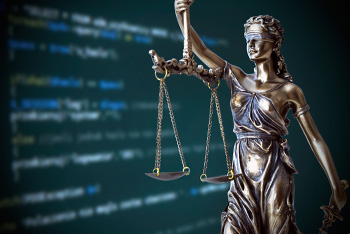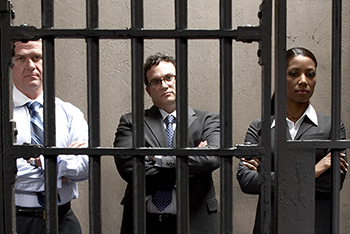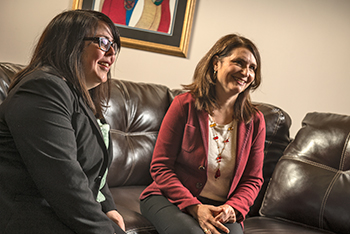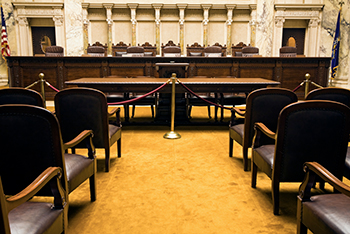|

|
1) The “Uberization” of Legal Services: Consistent With Ethics Rules?
A number of Wisconsin lawyers have received letters from virtual marketplaces inviting them to participate in their legal services. But can lawyers ethically contract for legal work through a virtual marketplace? State Bar Ethics Counsel Aviva Kaiser explores. |

|
2) Schofield Attorney Among Four Victims Killed in Tragic Shootings
With great sadness, the legal community learned that attorney Sara H. Quirt-Sann, 43, was among four victims killed in shootings that occurred in three separate locations near Wausau, including a law firm in Schofield. |

|
3) The Unattainable High of the Marijuana Industry
Several states have legalized the recreational or medical use of marijuana and their treasuries are seeing the benefits, but federal law still criminalizes marijuana use. In this article, attorney Danielle Scott Grant-Keane notes that lawyers who represent marijuana-related businesses must navigate conflicting state and federal laws to help their clients operate legally and reach full commercial potential. |

|
4) Top Consumer Complaints: What Agency Watchdogs Say You Can Do About Them
Every year, many Wisconsin residents contact the state with complaints about negative consumer experiences. This article sketches out the state’s consumer protection apparatus, identifies the most common types of complaints, and suggests best practices for consumers to work out disagreements with businesses. |

|
5) Human Trafficking in Wisconsin
Many people, including lawyers, don't realize the extent of human trafficking in Wisconsin and nationwide. Attorney Rachel Monaco-Wilcox and social worker Daria Mueller shed light on this industry, explain the challenges victims face in the legal system, and describe how lawyers can help victims rebuild their lives. |

|
6) Country’s Lowest Pay Rate for SPD Appointments Equals Constitutional Crisis
Wisconsin has the worst pay rate in the country for private attorneys who handle cases appointed by the State Public Defender (SPD). One group, which has petitioned the Wisconsin Supreme Court, says the pay rate is causing a “constitutional crisis.” |

|
7) Mass and Disparate Incarceration in Wisconsin: It’s Our Problem
Tackling the continuing problem of mass and disparate incarceration in Wisconsin will necessarily take a collaborative and widescale effort among key partners in the criminal justice system, including the state’s community of lawyers and judges. |

|
8) OWI Blood Draws: An Uncertain Road Ahead
Clear rules and consistent enforcement are as important for lawyers who prosecute and defend operating while intoxicated cases as they are for motor vehicle operators. But right now, the law regarding blood draws of drunk-driving suspects is muddled at best, explains attorney Rex Anderegg. |

|
9) Out of Sync: Assistive Reproductive Technology & Parentage Law
Advances in assistive reproductive technology are giving new options for parentage to individuals who are in same-sex marriages, are dealing with infertility, or both. To resolve disputes when a surrogacy agreement falls apart and grant parent status, Brown County Circuit Court Judge Thomas Walsh proposes that Wisconsin courts use an “intended-parent” test. |

|
10) Profiles in Public Interest Law
Lawyers choose to practice in the public interest for many reasons. For one, they’re passionate about providing access to justice for unrepresented or underrepresented people or groups. Here, 10 lawyers talk about why they pursued a public interest career. |

|
11) Milwaukee Moves Away From Money Bail System
Milwaukee County Circuit Court Judge Jeffrey Kremers discusses evidence-based pretrial release systems, including the one adopted in Milwaukee County, that rather than set bail based on the seriousness of the charge, focuses on the specific risk a defendant presents to not return to court. |

|
12) 2017 Wisconsin Legal Innovators
Who are this year’s Wisconsin's innovators? Meet these movers and shakers – and learn what drove them to put new ideas to work to solve problems and improve service to their clients and communities. |

|
13) What Solo and Small Firms Should Know About Artificial Intelligence
Here’s the good news: robot lawyers are not taking over, despite emerging applications for artificial intelligence (AI) in the legal sphere. But paying attention to “machine learning” techniques developing in the legal industry may reveal new opportunities for competitive advantage, legal tech experts say. |

|
14) Observations on the Wisconsin Supreme Court’s 2016-17 Term
The Wisconsin Supreme Court recently wrapped up its 2016-17 term, publishing 50 decisions. This article provides some insight on where the chips fell, with analysis from Michael B. Brennan, a trial and appellate lawyer and a former circuit court judge. |

|
15) Protecting Juveniles’ Rights: 50 Years of In re Gault
Juvenile law decisions in the 21st century support the proposition that a constitutional right must be honored to be effective. In this article, attorney Devon Lee explains that Wisconsin courts and defense counsel must be on guard every day to protect juveniles’ due process rights, first recognized in 1967 in In re Gault. |

|
16) Access to Justice: A New Regulatory Approach to the Virtual Legal Marketplace?
Oregon is addressing an access to justice problem with regulatory rule changes that embrace the virtual legal marketplace, including providers like Avvo. Other states have gone the opposite direction, issuing ethics opinions prohibiting such engagement. Wisconsin has not yet issued a formal position via ethics opinion or otherwise. |

|
17) On the Waterfront: New Shoreland Zoning Laws
Recent legislative developments might have reduced your familiarity with Wisconsin’s shoreland zoning laws. In this article by attorney Paul Kent, learn about the current rules and regulations to ensure the legal basis of clients’ waterfront structures is as sturdy as the physical foundations. |

|
18) Seventh Circuit Court of Appeals Appointments: Where are We Now?
The longest-running federal appeals court vacancy in the country is Wisconsin's seat on the U.S. Court of Appeals for the Seventh Circuit, which has been vacant since 2010. One nomination is pending. Two have failed. |

|
19) On Pro Se Litigants: Three Judges’ Views
The increasing number of pro se litigants presents challenges to judges and litigation attorneys. In this article by attorney Lara Czajkowski Higgins, three circuit court judges weigh in on their philosophies in handling pro se litigants in the courtroom and their advice to attorneys when facing pro se opposition. |

|
20) Guarding the Gate: Six Years of Daubert in Wisconsin
Some legal observers expected Wisconsin’s adoption of the Daubert standard for admission of expert testimony to lead to a sea change in the law. While this has not proved true, lawyers should be prepared to make a detailed record in the trial court showing why the expert opinions they hope to offer into evidence are reliable and comply with Daubert, says Waukesha County Circuit Court Judge Michael Aprahamian. |

|
21) Three Steps to Effective Succession Plans
Effective succession planning includes preserving and transmitting knowledge, maintaining existing client relationships and creating new sources of revenue, developing future leaders, valuing the law practice, acknowledging generational differences, and adhering to ethics rules throughout the planning process. In this article from attorney Michael Moore, read why serving clients well now includes planning for what will happen when you’re gone. |

|
22) Expungement Bill Gives Young Offenders More Opportunity for Second Chances
People who commit lower-level crimes while under the age of 25 must seek expungement at the time of sentencing. A bill with bipartisan support allows them to seek expungement later, after sentencing, and would apply retroactively. |

|
23) Court Approved: Family Law Mediators Can Draft Settlement Documents
The new rule, with an expected effective date of July 1, 2017, will allow lawyers who mediate family law cases to draft, modify, complete, and file settlement documents, giving divorcing couples more affordable options to come to a resolution. |

|
24) The Loomis Case: The Use of Proprietary Algorithms at Sentencing
A defendant challenged the use, at sentencing, of software that measures a defendant’s risk of recidivism. The case raises interesting questions about such algorithmic tools. |

|
25) 43 Wisconsin Law Blogs: Are You on this List?
Blogging helps lawyers showcase expertise while marketing to current and potential clients. Check out who is on InsideTrack’s third annual “Wisconsin Law Blogs” list. |
